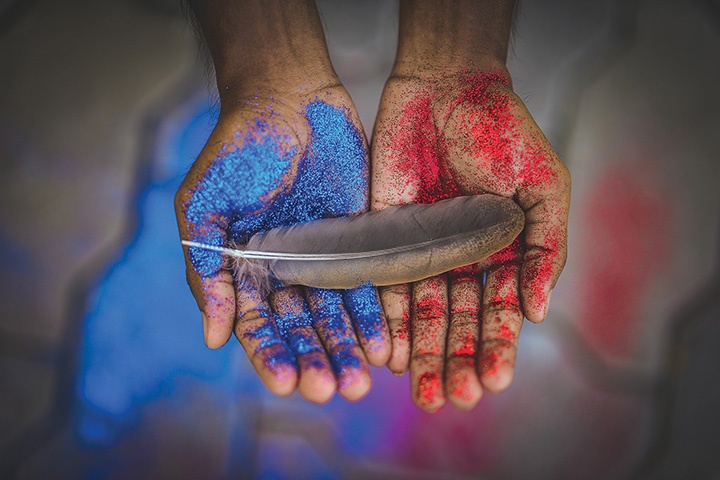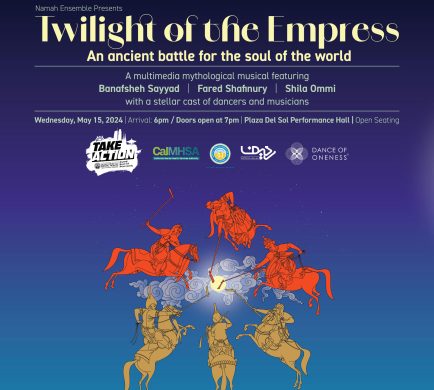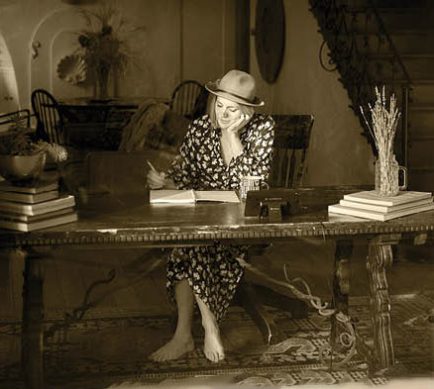By Tessa Boase
A heroine for our times, Etta Lemon campaigned for fifty years against the worldwide slaughter of birds for extravagantly feathered hats. Her legacy is the RSPB, grown from an all-female pressure group of 1889 with the splendidly simple pledge: Wear No Feathers.
Etta’s long battle against ‘murderous millinery’ triumphed with the Plumage Act of 1921 (July 1, 2021 will be the anniversary of this act) – but her legacy has been eclipsed by the more glamorous campaign for the vote, led by the elegantly plumed Emmeline Pankhurst.
This gripping narrative explores two formidable heroines and their rival, overlapping campaigns. Moving from the feather workers’ slums to high society, from the first female political rally to the rise of the eco-feminist, it restores Etta Lemon to her rightful place in history – the extraordinary woman who saved the birds.
Foreign Secretary Sir Edward Grey, a vice president of the RSPB and fanatical bird lover, gripped the ornate lectern at Manchester’s Free Trade Hall and stared levelly into the crowd. Two women had unfurled a calico banner between them, on which was daubed the slogan ‘Votes for Women’. He could hardly believe what he was seeing – or hearing. ‘Will the Liberal government give women the vote?’ called out one repeatedly in a fluting voice. Each was as young and as striking as the other. The meeting erupted, men, shouting over the top of the women’s question in angry cries. Suave and beaky, Sir Edward tightened his lips and waited for the order. He was, as it happened, a supporter of women’s suffrage. But to have a pre-election speech interrupted by ladies calling out and waving a homemade banner! It was unprecedented, and it was unacceptable.
At a brisk nod, the Chief Constable of Manchester pushed through the audience towards the two women and ‘invited’ them to put their question in writing so that it could be handed to the speaker. Christabel Pankhurst, 25, and Annie Kenney, 26, rolled up their banner and waited patiently. When no reply came at the end of the meeting, Annie – a cotton factory worker – clambered up onto her chair and repeated the question in a cry: ‘Will the Liberal government gives women the vote?’ They were instantly dragged out of the Free Trade Hall by burly stewards, the audience howling and jeering in their wake. As she passed a policeman, Christabel pursed her rosebud lips and spat.
Rather than pay fines for the outrage, the two chose a week in prison– and consequent martyrdom. They were released to a heroes’ welcome (bouquets, songs of liberty, stirring speeches). Emmeline stood proudly by the daughter, who had put women’s suffrage on the front page of every newspaper. From now on, heckling of politicians, and a willingness to go to prison, became key tactics in the WSPU campaign to get the vote.As the WSPU suffrage movement geared up, Mrs. Pankhurst’s shop, Emerson & Co, was finally wound down in 1906. Emmeline and Christabel moved south to join art student Sylvia in London, the better to influence parliament – just as the SPB had done in 1889, choosing London over Manchester as the centre of operations. The move to the capital marked a determined change of gear for the Women’s Social and Political Union.
At 48 years old, Mrs. Pankhurst was of Etta Lemon’s generation. Yet, she had her daughters as well as her ardent young followers propelling her forward. She had the thoroughly modern Christabel, all painted eyebrows and persuasive tongue, courting martyrdom to win the propaganda war. In particular, Mrs. Pankhurst’s eldest daughter gave her softly spoken, genteel mother the momentum to step into the limelight at last.
The WSPU organized widespread heckling during the 1906 General Election. ‘Pay no attention to those cats mewing,’ male speakers cried in irritation as yet another woman popped up and started shouting questions in meeting halls and tents throughout the country (‘Will the Liberal Government, if returned, give votes to women?’). These women would then be pounced upon by male stewards and dragged outside, and their heavy hats tipped well over the face as a protection against missiles from the crowd (eggs, cayenne pepper, stones).
The Liberal candidate for Manchester North West, a young man named Winston Churchill, was particularly outraged by the idea of women’s suffrage. ‘They come here asking us to treat them like men,’ he expostulated. ‘That is what I particularly want to avoid. We must observe courtesy and chivalry to the weaker sex dependent on us.’ Churchill could not open his mouth without being heckled for an answer to the women’s suffrage question. ‘Nothing would induce me to vote for giving women the franchise,’ he replied with contempt. ‘I am not going to be henpecked on a question of such grave importance.’
‘These silly women’, as they were known, were not the bluestocking matrons of last century’s suffrage movement, caricatured as elderly spinsters in horn-rimmed spectacles and trilby hats. They were young, articulate, fearless – and attractive. ‘If I might illustrate my meaning from football,’ said one male suffrage supporter at a meeting in Redhill, the hometown of Mr. and Mrs. Lemon; ‘both have the same goal, but the suffragettes are, perhaps, the forwards in the game, while the older suffrage societies are the backs and halves.’ Many of them belonged to the same social circle as Churchill (son of a Conservative lord and an American heiress). When Alice Milne, secretary of the WSPU Manchester branch, visited the London office in October 1906, she was surprised to find it ‘full of fashionable ladies in silks and satins . . . Ours was a movement for the middle and upper classes’ – women who shopped at boutiques like Fabbricotti’s.
The public could not get over its astonishment that these agitators were ladies, Ultra-feminine, exquisitely attired ladies. Their bonnets and hatpins usually made it into the first paragraph of every report on their latest exploits. Fashion had become political. At the opening of parliament in October 1906, 20 such ladies invaded the Strangers’ Lobby and started making speeches in high, patrician voices, waving red flags about their heads, standing on the settees. ‘Six stalwart policemen arrived at the double and threw themselves into the mêlée,’ reported the Daily Chronicle. ‘The bodyguard was quickly dispersed – leaving a trail of hatpins and hairpins behind them, and even bonnets.’

The belittling new term ‘suffragette’, coined by the Daily Mail in 1906, was immediately taken up by Mrs. Pankhurst’s WSPU as a badge of honour. Soon it became the word in every buzzing conversation, whether in solidarity or – far more commonly – appalled dismay. The RSPB’s aging personalities and small victories slipped off the front page and down the news agenda. The Queen had just decried in public the osprey, but nobody seemed to care. And like a Trojan horse, the ‘suffragette’ made her first entrance into the RSPB’s annual general meeting that year in Hanover Square.
Through twirling mustaches, the Marquess of Granby warmed up his sedate, bird-loving audience with a little joke about suffrage. ‘Where ladies are in the majority, it is somewhat difficult to deal with them!’ Granby was referring to the recent WSPU deputation that had gone to call on the new Liberal Prime Minister, Sir Campbell Bannerman. For an hour, the women had waited on the doorstep while the PM hid inside, refusing to open the door of 10 Downing Street. ‘If many of the ladies who were now making strenuous attempts to wear the breaches were at the same time to give up wearing egrets,’ continued Granby, pausing for laughter, ‘they would do more to extend their influence in the world than they would do by many of the methods adopted in the agitation for women’s rights.’
The conservative core of the RSPB, male and female, was horrified by the spectacle of well-dressed women making a strident exhibition of themselves. It went against every natural, God-ordained principle. As a murmur of complacent ‘Hear hears’ ran around the AGM meeting room, a renegade got to her feet. Miss Clara Mordan, 62, was a wealthy heiress whose father had invented the propelling pencil. This perhaps gave her the confidence to speak out more boldly than most – and especially on this contentious subject. ‘From a wide acquaintance with women suffragists,’ said Miss Mordan (freshly recruited to Mrs. Pankhurst’s WSPU), ‘I can confidently assert that they are of the class of women who are the most in sympathy with the objects of the Bird Society.’
Frank and Etta Lemon’s eyes might, for a brief moment, have met. From within their own ranks! The ‘suffragettes’ were precisely the sort of women – and this was clear to all who had witnessed the rallies around Westminster – most likely to wear murderous millinery. Few of them seemed to go out without a flock of long-tailed parakeets or half an Acadian owl upon their heads. Miss Mordan sat, avoiding hostile stares. But the cat was out of the bag. There were close and growing links between animal rights issues and the suffrage cause; it was inevitable that humanitarian and feminist movements would share sympathizers. The RSPB attracted educated, fervent, brave women who were not afraid to swim against the tide of popular taste. This was society’s strength. But if their members were also clandestine cardholders for the suffrage movement, militant or otherwise – well, this might also damage the society’s reputation.
The glaring crossover in membership once pointed out seemed suddenly to threaten all that Mrs. Lemon believed in. She was the RSPB. She and Frank, it was theirs, moulded in their image, a mouthpiece for their conservative values. It could not admit this insubordinate, unnatural, deeply troubling element.
‘When the suffragettes began the campaign, they were mis taken for notoriety hunters, featherheads, flibbertigibbets,’ reported the Daily Mirror that October. ‘Now that they have proved they are in earnest, they have frightened the government, they have broken through the law, they have made votes for women practical politics.’
Like most of her circle, Etta Lemon did not believe in votes for women. But rather than keep quiet, she was willing to risk her good name in fighting against this pernicious cause. There was no time to lose.







